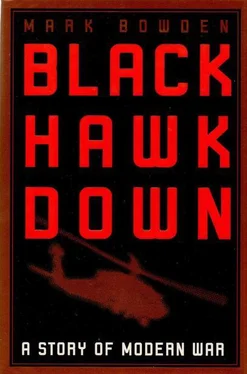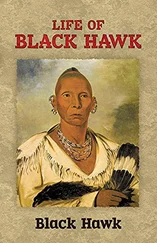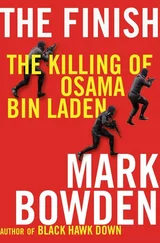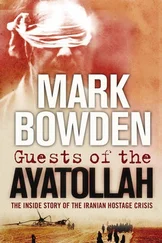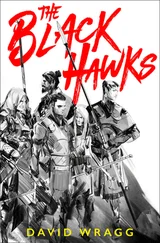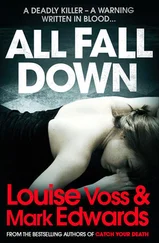Mark Bowden - Black Hawk Down
Здесь есть возможность читать онлайн «Mark Bowden - Black Hawk Down» весь текст электронной книги совершенно бесплатно (целиком полную версию без сокращений). В некоторых случаях можно слушать аудио, скачать через торрент в формате fb2 и присутствует краткое содержание. Город: New York, Год выпуска: 1999, ISBN: 1999, Издательство: Atlantic Monthly Press, Жанр: nonf_military, на английском языке. Описание произведения, (предисловие) а так же отзывы посетителей доступны на портале библиотеки ЛибКат.
- Название:Black Hawk Down
- Автор:
- Издательство:Atlantic Monthly Press
- Жанр:
- Год:1999
- Город:New York
- ISBN:978-0871137388
- Рейтинг книги:3 / 5. Голосов: 1
-
Избранное:Добавить в избранное
- Отзывы:
-
Ваша оценка:
- 60
- 1
- 2
- 3
- 4
- 5
Black Hawk Down: краткое содержание, описание и аннотация
Предлагаем к чтению аннотацию, описание, краткое содержание или предисловие (зависит от того, что написал сам автор книги «Black Hawk Down»). Если вы не нашли необходимую информацию о книге — напишите в комментариях, мы постараемся отыскать её.
Black Hawk Down — читать онлайн бесплатно полную книгу (весь текст) целиком
Ниже представлен текст книги, разбитый по страницам. Система сохранения места последней прочитанной страницы, позволяет с удобством читать онлайн бесплатно книгу «Black Hawk Down», без необходимости каждый раз заново искать на чём Вы остановились. Поставьте закладку, и сможете в любой момент перейти на страницу, на которой закончили чтение.
Интервал:
Закладка:
His ordeal was over. He had been thinking about getting the radio operating, but now, with his rescuers at hand, there was no need.
Shughart and Gordon were calm. They reached in and lifted Durant out of the craft gently, one taking his legs and the other grabbing his torso, as if they had all the time in the world. They set him down by a tree.
He was not in great pain. Durant was in a perfect position to cover the whole right side of the aircraft with his skinny-popper. Behind him the front of his aircraft was wedged tightly against a tin wall, closing off any easy approach from that side.
He could see that his crew chiefs had taken the worst of the crash. They didn’t have the shock absorbers in back. He watched them lift Bill Cleveland from the fuselage. He had blood all over his pants, and was talking but making no sense.
Then Gordon and Shughart moved to the other side of the helicopter to help Tommy Field, the other crew chief. Durant couldn’t see what was happening. He assumed they were attending to Field and setting up a perimeter, or looking for a way to get them out, or perhaps looking for a place where another helicopter could set down and load them up.
Somalis were starting to poke their heads around the corner on Durant’s side of the copter. He squeezed off a round, and they dropped back. His gun kept jamming, so he would eject the round, and the next time it would shoot properly. Then it would jam again.
He could hear more shooting from the other side of the airframe. It still hadn’t occurred to him that Shughart and Gordon were the entire rescue force. There was no big rescue team—other than the emergency ground convoy, which was still forming at the airport base two miles away.
Durant also did not know, none of them did, that only 110 yards or so away, pilots Keith Jones and Karl Maier were waiting. The same team that had set the Little Bird down near the first crash site to help Cliff Wolcott’s downed crew had now set their helicopter down again—to help Durant and his crew.
Jones and Maier were aiming their weapons at alleyways leading to the clearing, expecting a crowd of Somalis to show up any second, and hoping that Shughart and Gordon would arrive with Durant and his crew. They were eager to load everybody up and hustle out of there.
Goffena, circling overhead, had seen Shughart and Gordon lift Durant and then Cleveland and Field out of the fuselage. He knew they weren’t going to be able to carry them to where Jones’ Little Bird was waiting.
He got on the radio and explained to Jones and Maier that the boys had set up a perimeter around Durant’s Blackhawk. They had badly wounded crew members. They could not make it to the Little Bird. They were going to have to hang on until the ground force arrived.
After waiting on the ground about five minutes, Maier and Jones reluctantly asked for permission to leave and refuel. The Little Bird was running low, and they were vulnerable. They lifted off, leaving the Americans at crash site two to their fate.
DURANT’S BLACKHAWK had crashed in Wadigley, a crowded neighborhood just south of where Yousuf Dahir Mo’Alim lived on a street of rag huts and tin-roofed shanties. Mo’Alim was an armed bandit and gunman for hire, but on this day he had thrown his entire gang of 26 street fighters into the citywide effort to fight off the American invaders.
The instant Durant’s helicopter hit the ground, Mo’Alim saw everyone around him reverse direction. Moments before, the crowd on the streets and the fighters had been moving north, over to where the first helicopter had crashed. Now everyone was running south. Mo’Alim ran with them, a goateed veteran soldier waving his weapon and shouting.
“Turn back! Stop! There are still men inside who can shoot!”
Some listened to Mo’Alim, for he was known as a militia leader. Others ran on ahead. Ali Hussein, who managed a pharmacy near where the helicopter crashed, saw many of his neighbors grab guns and run toward the wreck. He caught hold of the arm of his friend Cawale, who owned the Black Sea restaurant. Cawale had a rifle. Hussein grabbed him by both shoulders.
“It’s dangerous. Don’t go!” he shouted at him. But there was the smell of blood and vengeance in the air. Cawale wrestled away from Hussein and joined the running crowd.
Minutes later, as Mo’Alim and his men reached the second crash site, they saw Cawale sprawled dead in the dirt, just four paces in front of the helicopter. The ground all around was littered with the bodies of Somalis. As Mo’Alim had expected, the Americans around the crashed helicopter were still very capable of fighting.
He tried to hold the crowd back, but they were angry and brazen. He wanted to find a way for his militiamen to get clear shots at the Americans, but it was difficult to approach the small clearing where the helicopter lay. The Americans had every approach covered with deadly automatic-weapons fire.
Mo’Alim waited for more of his men to catch up so that they could mount a coordinated attack.
DURANT STILL THOUGHT things were under control. His leg was broken but it didn’t hurt. He was on his back, propped against a supply kit next to a small tree, using his weapon to keep back the occasional Somali who poked his head into the clearing.
He could hear firing on the other side of the helicopter. He knew Ray Frank, his copilot, was hurt but alive. And somewhere were the two boys and his crew chief, Tommy Field. He wondered if Tommy was OK. He figured it was only a matter of time before the ground vehicles showed up to take them out.
Then he heard one of the guys—it was Gary Gordon—shout that he was hit. Just a quick shout of anger and pain. He didn’t hear the voice again.
The other guy, Randy Shughart, came back around to Durant’s side of the bird.
“Are there weapons on board?” he asked.
The crew chiefs carried M-16s. Durant told him where they were kept, and Shughart stepped into the craft, rummaged around and returned with both rifles. He handed Durant Gordon’s weapon, a CAR-15 automatic rifle loaded and ready to fire. He didn’t say what had happened to Gordon.
“What’s the support frequency on the survival radio?” Shughart asked.
It was then, for the first time, that it dawned on Durant that they were stranded. He felt a twist of alarm in his gut. If Shughart was asking how to set up communications, it meant he and Gordon had come in on their own. They were the entire rescue team. And Gordon had just been shot!
Durant explained standard procedure on the survival radio to Shughart. He said there was a channel Bravo, and he listened while Shughart called out. Shughart asked for immediate help, and was told that a reaction force was en route. Then Shughart took the weapons and moved back around to the other side of the helicopter.
Durant felt panic closing in now. He had to keep the Somalis away. He could hear them talking behind a wall, so he fired in that direction. It startled him because he had been firing single shots, but this new weapon was set on burst. The voices behind the wall stopped. Then two Somalis tried to climb over the nose end of the copter. He fired at them, and they jumped back. He didn’t know whether he had hit them.
A man tried to climb over the wall, and Durant shot him. Another came crawling from around the corner with a weapon, and Durant shot him, too.
Suddenly there was a mad fusillade on the other side of the helicopter that lasted for about two minutes. He heard Shughart shout in pain. The shooting stopped.
High overhead in the surveillance helicopters, worried commanders were watching on video screens.
“Do you have video over crash site number two?”
“Indigenous personnel moving around all over the crash site.”
Читать дальшеИнтервал:
Закладка:
Похожие книги на «Black Hawk Down»
Представляем Вашему вниманию похожие книги на «Black Hawk Down» списком для выбора. Мы отобрали схожую по названию и смыслу литературу в надежде предоставить читателям больше вариантов отыскать новые, интересные, ещё непрочитанные произведения.
Обсуждение, отзывы о книге «Black Hawk Down» и просто собственные мнения читателей. Оставьте ваши комментарии, напишите, что Вы думаете о произведении, его смысле или главных героях. Укажите что конкретно понравилось, а что нет, и почему Вы так считаете.
